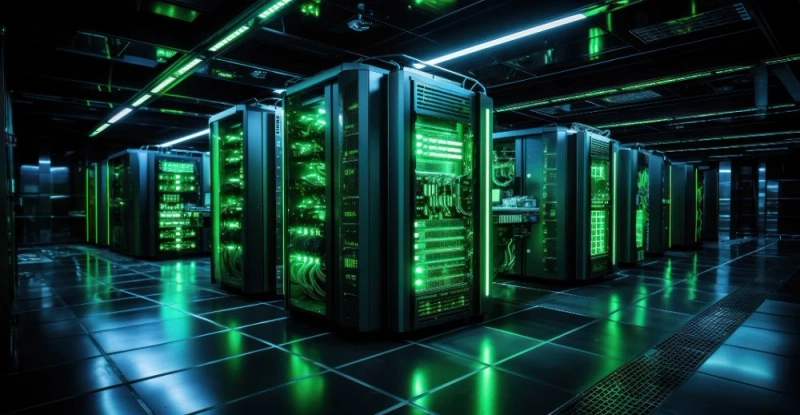Data centers are critical infrastructures that support the digital economy, housing servers and networking equipment essential for processing, storing, and managing data. A vital aspect of data center operations is power management, which directly impacts efficiency, reliability, and sustainability. This blog post will delve into the importance of power in data centers, the challenges faced, and the innovations shaping the future of data center power management.
The Importance of Power in Data Centers
Power is the lifeblood of data centers. It is required for:
- Operational Continuity: Data centers need a constant power supply to ensure that servers remain operational. Any interruption can lead to data loss, service outages, and financial repercussions.
- Cooling Systems: The equipment in data centers generates significant heat, necessitating robust cooling systems. These systems also require power, making energy management critical.
- Scalability: As businesses grow, their data needs increase, requiring more power. Efficient power management allows data centers to scale operations without compromising performance.
- Cost Efficiency: Energy costs can constitute a significant portion of operational expenses. Effective power management strategies can lead to substantial cost savings.
Challenges in Data Center Power Management
Despite its importance, managing power in data centers comes with several challenges:
- Energy Consumption: Data centers are notorious for their high energy consumption. According to the U.S. Department of Energy, data centers consume about 2% of the total electricity used in the United States, a figure that is expected to rise.
- Reliability: Ensuring a reliable power supply is paramount. Data centers often utilize backup generators and uninterruptible power supplies (UPS) to mitigate risks, but these systems require careful planning and maintenance.
- Sustainability: With increasing awareness of climate change, data centers face pressure to reduce their carbon footprint. Transitioning to renewable energy sources and improving energy efficiency are critical steps.
- Heat Management: The heat generated by servers can lead to overheating, which can damage equipment and disrupt operations. Effective cooling solutions are essential but can also consume significant energy.
Innovations in Data Center Power Management
To address these challenges, the data center industry is witnessing several innovations:
1. Energy-Efficient Technologies
Advancements in technology are leading to more energy-efficient hardware. Modern servers and networking equipment are designed to consume less power while delivering higher performance. For example, the use of solid-state drives (SSDs) instead of traditional hard drives can significantly reduce energy consumption.
2. Renewable Energy Integration
Many data centers are now integrating renewable energy sources, such as solar and wind power, into their operations. This shift not only reduces reliance on fossil fuels but also helps in achieving sustainability goals. Companies like Google and Microsoft have committed to powering their data centers with 100% renewable energy.
3. Advanced Cooling Solutions
Innovative cooling technologies, such as liquid cooling and immersion cooling, are being adopted to enhance efficiency. These methods can significantly reduce the energy required for cooling compared to traditional air cooling systems.
4. Power Usage Effectiveness (PUE) Metrics
PUE is a key metric used to measure the energy efficiency of a data center. A lower PUE indicates better efficiency, as it reflects the ratio of total building energy usage to the energy used by the IT equipment alone. Data centers are increasingly focusing on optimizing PUE to enhance their energy performance.
5. Smart Grid Technologies
The integration of smart grid technologies allows data centers to better manage their energy consumption. These technologies enable real-time monitoring and control of power usage, allowing for more efficient energy distribution and usage.
Conclusion
Power management is a critical aspect of data center operations, affecting everything from operational continuity to sustainability. As the demand for data continues to grow, so does the need for efficient and reliable power solutions. By embracing innovations in energy efficiency, renewable energy, and advanced cooling technologies, the data center industry can overcome the challenges associated with power management and pave the way for a more sustainable future.
As we look ahead, it is clear that effective power management will not only enhance operational efficiency but also play a crucial role in addressing environmental concerns. Data centers that prioritize energy efficiency and sustainability will be better positioned to thrive in an increasingly digital world. To know the latest trends and insights related to the Data Center Power Market, please visit here.



